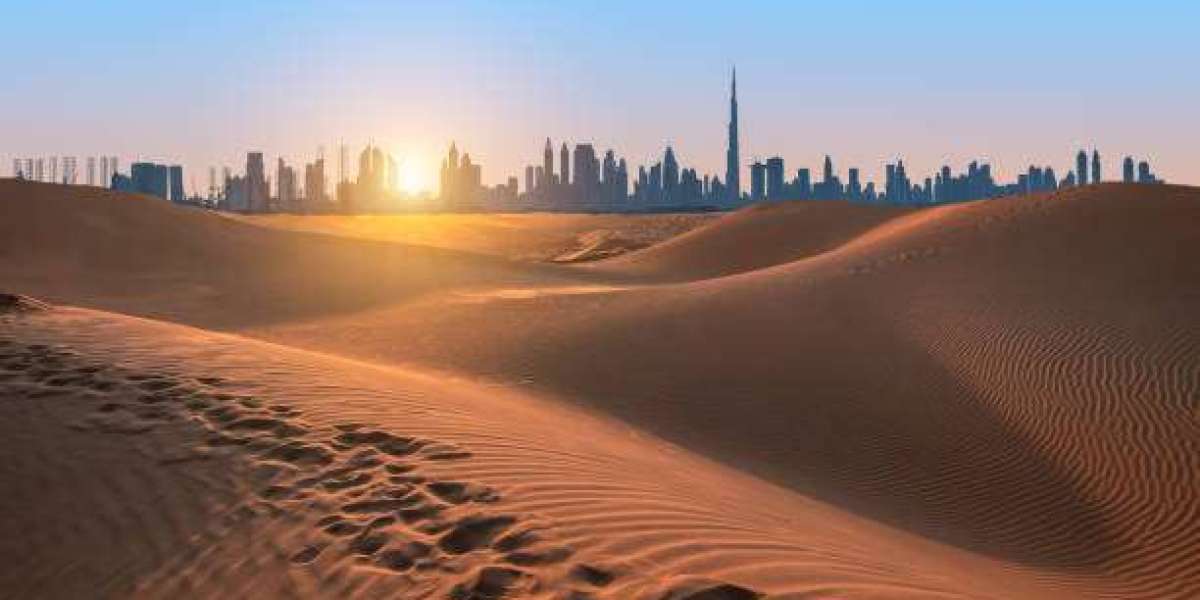Wahiba Sands Desert Safari vs. Other Oman Desert Tours: Which Is Better?
Oman’s desert landscapes are some of the most captivating in the Arabian Peninsula, offering a blend of untouched beauty and cultural depth. Among the most popular desert destinations is the Wahiba Sands Desert Safari, known for its striking red and golden dunes and traditional Bedouin hospitality. However, Oman has other desert regions, including the vast Rub al Khali (Empty Quarter) and lesser-known interior plains, each offering its own unique experiences. So, which one should you choose? Comparing these desert tours side by side can help you find the one that best suits your travel goals.
If you're planning an adventure in Oman, a Wahiba Sands Desert Safari is often the first to catch your eye — but it's not your only option.
Overview of Wahiba Sands
Why Wahiba Sands Stands Out
Wahiba Sands, also called Sharqiya Sands, is a 12,500-square-kilometer desert located just 2.5 to 3 hours from Muscat. It's known for its easily accessible location, towering dunes, and strong cultural presence through local Bedouin communities. Tour operators have established well-maintained desert camps here, making it ideal for first-time desert travelers, families, and those looking for a balance between adventure and comfort.
Key Highlights
Easy road access from Muscat
Rolling dunes with soft sand, ideal for dune bashing and sandboarding
Opportunities for cultural interaction with Bedouin families
Well-developed overnight camps with amenities
Ideal for both day trips and multi-day tours
Wahiba Sands offers an approachable desert experience that’s thrilling yet safe and culturally enriching.
Other Desert Options in Oman
Rub’ al Khali (The Empty Quarter)
The Rub’ al Khali, also known as the Empty Quarter, stretches across Oman, Saudi Arabia, the UAE, and Yemen. It's the largest continuous sand desert in the world and significantly more remote than Wahiba Sands. Tours to this region often start from Salalah in southern Oman and require more planning, longer drive times, and a higher tolerance for rugged conditions.
Pros:
Immense, untouched sandscapes
Ideal for seasoned adventurers
Fewer tourists, more solitude
Cons:
Requires more time and advanced logistics
Limited camp infrastructure
Not ideal for quick trips or first-time travelers
Interior Plains and Remote Desert Regions
Oman also features desert-like plains between the Hajar Mountains and Wahiba Sands. These areas are less touristy and offer a different type of desert feel — rockier terrain, mixed landscapes, and hidden wadis.
Pros:
Unique landscapes combining mountains and desert
Off-the-beaten-path exploration
Great for hiking and photography
Cons:
Not always suited for dune-related activities
Sparse amenities
Requires local guidance
Experience and Activity Comparison
Dune Bashing and Sand Sports
Wahiba Sands is the best location for high-adrenaline activities like dune bashing, sandboarding, and 4x4 rides. The dunes are tall, smooth, and consistent — perfect for desert driving.
Rub’ al Khali, while vast, has a different terrain that may not always suit casual dune driving. Some parts are soft and powdery, while others are too flat for excitement. The remote plains typically lack the height or consistency for true dune-based sports.
Camel Rides and Desert Walks
Camel rides are available in all desert areas, but Wahiba Sands offers the most organized and beginner-friendly experiences. With plenty of camels and handlers on-site, rides are safe, educational, and part of the cultural experience.
In the Empty Quarter, camel rides can be longer and more authentic but may require a stronger physical commitment. The plains are better suited for short hikes and scenic walks rather than structured camel experiences.
Cultural Immersion
Wahiba Sands stands out for cultural connection. Many tours include visits to Bedouin homes, cooking demonstrations, or conversations over coffee. This access to traditional life adds a layer of meaning to the tour.
Rub’ al Khali is culturally rich but less interactive, as settlements are few and far between. Other regions may pass through historical villages or oases, but organized cultural elements are not always guaranteed.
Overnight Safari Comparison
Camping and Amenities
Wahiba Sands has a variety of desert camps — from simple tents to luxurious setups with private bathrooms and traditional décor. You can expect clean facilities, warm meals, and guided activities.
In Rub’ al Khali, accommodations are more basic or involve mobile camps set up by your guide. This can be exciting for adventurous travelers but might lack comfort. The plains have limited camping infrastructure and often require more planning and gear.
Night Activities
Wahiba Sands offers stargazing, campfire gatherings, and sometimes traditional music or dancing. These planned activities create a memorable atmosphere and make the night as enjoyable as the day.
In other deserts, especially remote ones, the focus shifts to solitude and nature. Stargazing is still stunning but may be more personal and less structured. It's ideal if you prefer a quieter, introspective evening.
Accessibility and Travel Time
Wahiba Sands is easy to access from Muscat and can be visited on a day trip or short overnight tour. Roads are well-maintained, and most major tour operators include transport.
Rub’ al Khali often requires flights to Salalah and long 4x4 drives. The trip is better suited for those with more time and a desire to explore Oman’s southern Dhofar region.
The interior plains are usually accessible via secondary roads and may require navigation skills or a local guide to avoid getting lost.
Ideal Travelers for Each Destination
| Desert Location | Best For |
|---|---|
| Wahiba Sands | First-time visitors, families, cultural seekers |
| Rub’ al Khali | Adventure lovers, experienced desert trekkers |
| Interior Plains | Nature photographers, offbeat explorers |
Choosing the Right Safari for You
To choose between Wahiba Sands and other desert tours, ask yourself:
How much time do I have? Wahiba is perfect for short trips. Rub’ al Khali needs 2–3 days minimum.
Do I want adventure or culture—or both? Wahiba offers a mix. The Empty Quarter leans more toward adventure.
How comfortable am I with basic facilities? If luxury is a priority, Wahiba Sands has better options.
Do I want to stay on the tourist trail or go off it? Wahiba is more popular, while the others are less visited.
Final Verdict: Which Desert Safari Is Better?
While each desert in Oman has its own beauty and appeal, the Wahiba Sands Desert Safari strikes the best balance for most travelers. It offers easy access, a wide range of activities, strong cultural engagement, and excellent camp setups. Whether you're traveling solo, with family, or on a short itinerary, Wahiba Sands delivers a complete and satisfying desert experience.
For those with more time and a thirst for deep adventure, the Rub’ al Khali offers unmatched vastness and solitude. The interior plains, though lesser-known, provide a different kind of rugged charm.
But if you're after a well-rounded journey through sand, tradition, and Omani warmth, Wahiba Sands remains the top choice.



